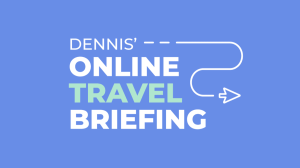Uber's New Viator Partnership Highlights Increased Fragmentation in Online Travel
Skift Take

Dennis' Online Travel Briefing
Editor’s Note: Every Wednesday, Executive Editor and online travel rockstar Dennis Schaal will bring readers exclusive reporting and insight into the business of online travel and digital booking, and how this sector has an impact across the travel industry.Do you remember a few years ago how there was so much talk in online travel about the Booking Holdings-Expedia Group duopoly? How Expedia Group, which owned Expedia, Travelocity, Orbitz and Hotels.com, and Booking, with brands including Booking.com, Kayak, Priceline and Agoda, controlled the hotel market and a whole lot more in travel?
Well, the duopoly concept was a bit overblown at the time, and now Airbnb and Google Travel have stepped in with muscular market share regardless.
But if intense consolidation characterized the online travel universe back then, there have been a bevy of new players emerging in online travel in the interim that are spearheading what might be characterized as a de-consolidation movement.
Rideshare leader Uber's announced partnership this week with tours and activities brand Viator, owned by Tripadvisor, highlights the influx of nontraditional pla

